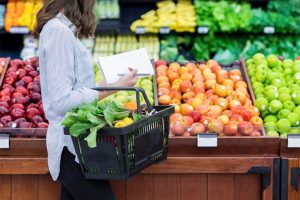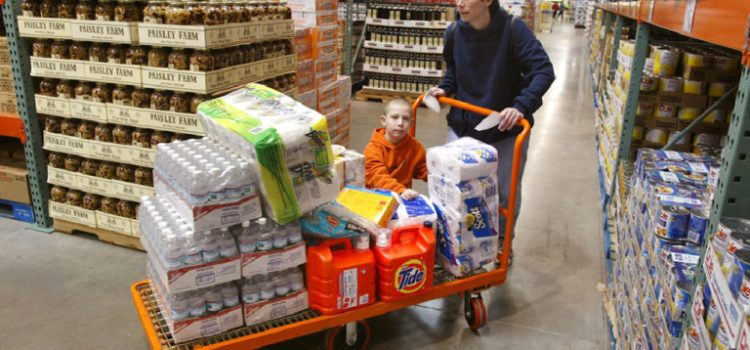
Introduction
Buying in bulk can be a budget-friendly approach to grocery shopping, especially for staples like grains, legumes, and frozen vegetables. In this article, we’ll explore the art of mindful bulk shopping, providing guidance on how to save money by purchasing certain items in bulk and, just as importantly, how to store them properly. Make the most of your budget with these practical tips.
The Mindful Bulk Shopping Advantage
Bulk shopping offers several financial benefits:
- Cost Savings: Buying in larger quantities often results in lower unit prices, saving you money in the long run.
- Reduced Packaging: By purchasing in bulk, you can reduce packaging waste, which is not only eco-friendly but also budget-conscious.
- Convenience: Having a supply of staples on hand means you can whip up a meal without last-minute trips to the store.

Image by: https://www.guelphtoday.com/village-life/how-to-shop-smart-in-a-world-of-rising-grocery-store-prices-6665942
Items to Buy in Bulk
Consider purchasing these items in bulk to maximize your savings:
- Grains: Items like rice, pasta, oats, and quinoa are excellent candidates for bulk shopping. These staples have a long shelf life and are versatile in various recipes.
- Legumes: Stock up on dried beans, lentils, and chickpeas. These are not only cost-effective but also excellent sources of plant-based protein.
- Frozen Vegetables: Buying frozen vegetables in bulk can save you money while ensuring you always have nutritious options available for your meals.
Storing Bulk Items Properly
To maintain the quality and longevity of your bulk purchases, follow these storage tips:
- Airtight Containers: Invest in airtight containers for your grains and legumes. These containers keep moisture and pests at bay, ensuring your staples stay fresh.
- Labeling: Clearly label your containers with the contents and purchase date to help with rotation.
- Cool, Dry Place: Store your bulk items in a cool, dry, and dark place. This prevents spoilage and extends the shelf life.
- Freezer Bags: When buying frozen vegetables in bulk, portion them into freezer bags for easy access and to prevent freezer burn.
- Rotation: Practice the “first in, first out” rule to ensure you use older items before newer ones.
Making the Most of Bulk Shopping
To fully benefit from mindful bulk shopping:
- Meal Planning: Plan meals around the bulk items you have on hand to minimize waste and save money.
- Storage Rotation: Regularly review your stored items to ensure you use them before they expire.
- Preservation Techniques: Learn how to preserve and store items for long-term use, such as canning or freezing.
- Buying Fresh: For certain items, like fruits and vegetables, buy fresh or in smaller quantities to reduce waste and ensure quality.
- Budget Check: Periodically review your budget to see how much you’re saving through bulk shopping and adjust your strategy as needed.

https://www.bulkco.co.uk/wp-content/uploads/2020/07/Popular-Items-to-Buy-in-Bulk-768×512.jpg
Conclusion
Mindful bulk shopping for grains, legumes, and frozen vegetables is a smart and budget-friendly approach to grocery shopping. By purchasing these staples in larger quantities and storing them properly, you can significantly reduce your grocery costs. Meal planning, storage rotation, and preservation techniques are your tools to make the most of bulk shopping while maintaining the quality and freshness of your food. It’s a cost-effective and eco-friendly way to stock up your pantry while staying within your budget.










